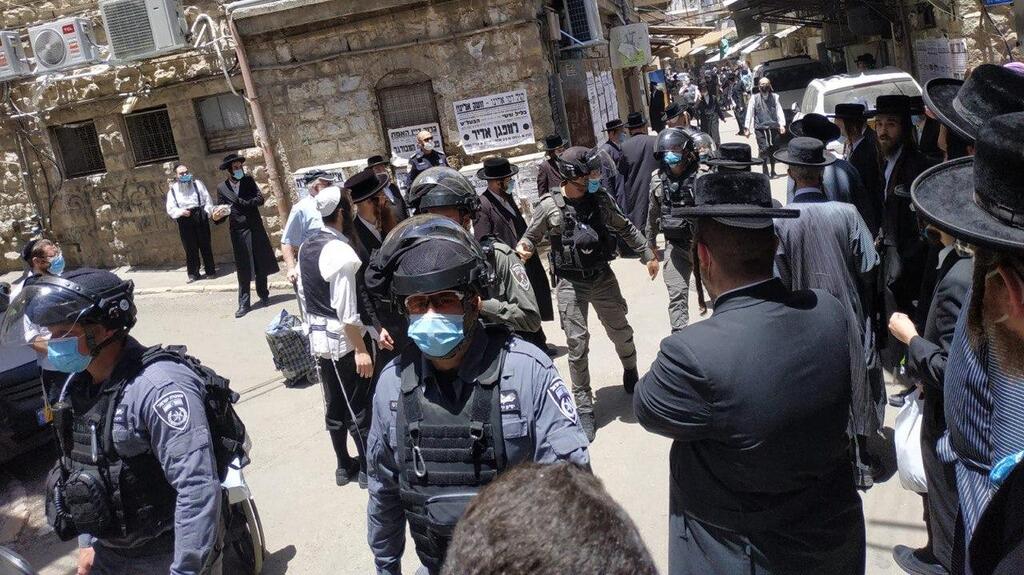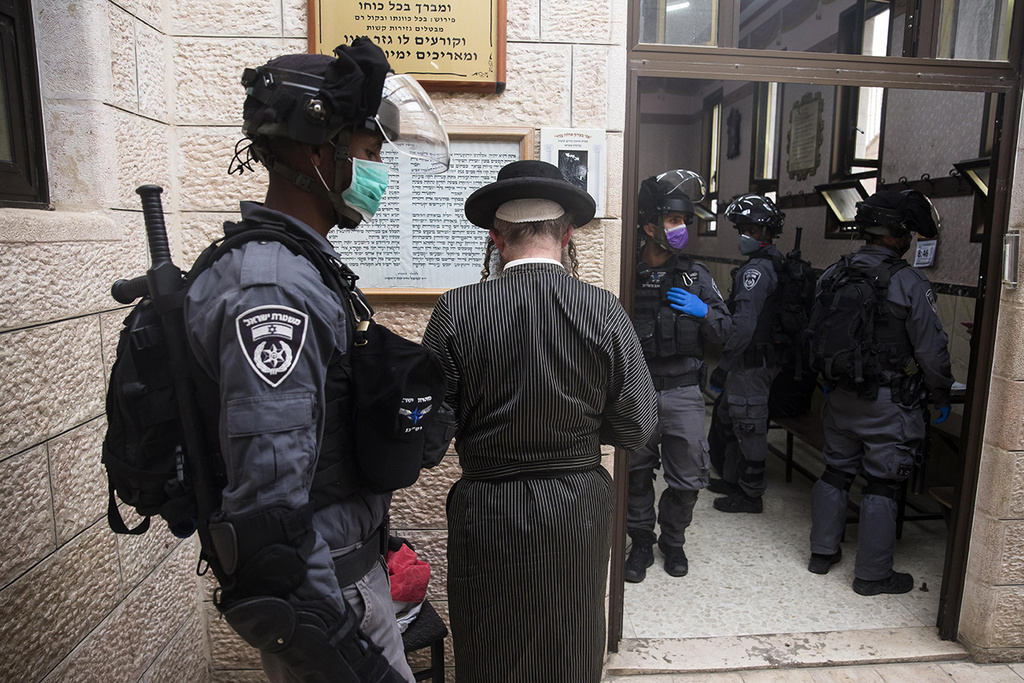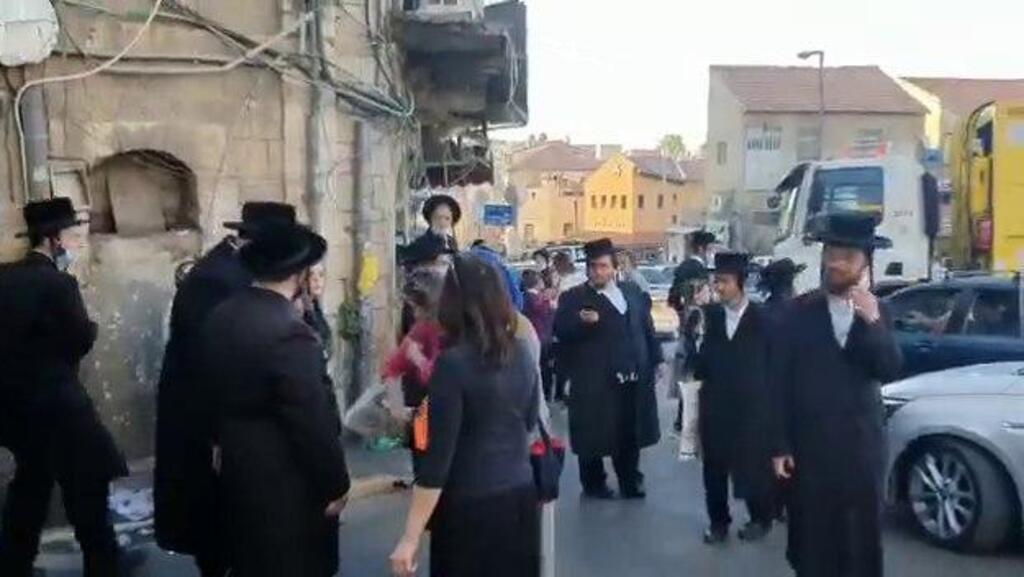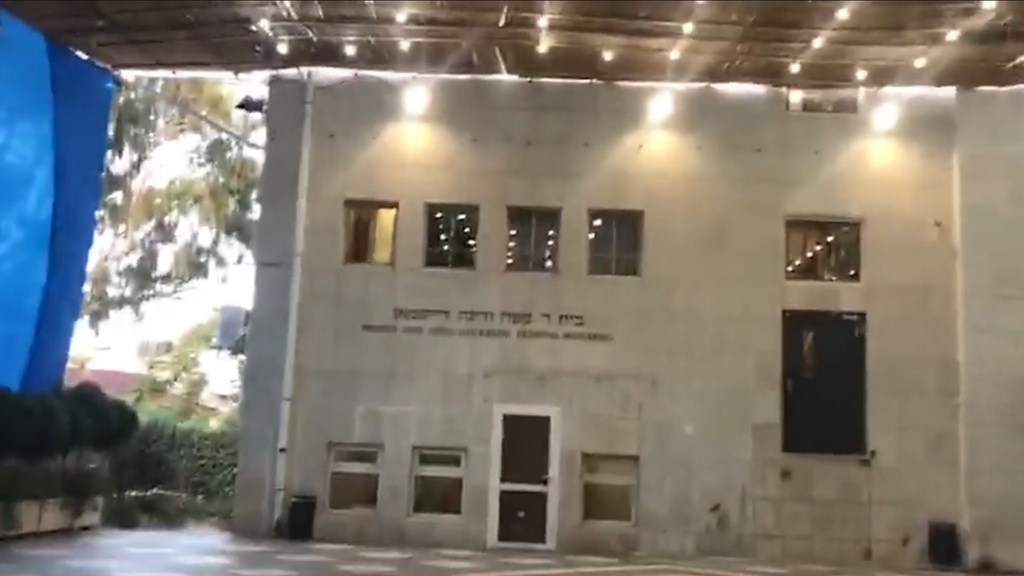Many major ultra-Orthodox communities in Jerusalem have said they will observe the communal living customs of the Sukkot holiday, despite the lockdown and the government promise of large fines.
The intention to disregard the restrictions comes after the government approved more coronavirus curbs, according to which people are barred from entering another person's place of residence, or a sukkah, during the duration of the nation lockdown, and will be fined NIS 500 for violating the rule.
4 View gallery


Police officers in Jerusalem's Mea Shearim neighborhood during the first wave of the pandemic
(Photo: Courtesy)
While the mainstream rabbis in the ultra-Orthodox community, as well as the chief rabbis of Israel, called on their public to adhere to the Health Ministry’s guidelines and refrain from public events, several major Hasidic yards in the capital are set to erect enormous sukkahs, suited for large gatherings.
Among the Haredi communities who said they will celebrate the holiday as planned are Toldot Avraham Yitzchak, Toldot Aharon, Breslav and Slonim, all located in Jerusalem’s Mea Shearim neighborhood.
A senior member of the Toldot Avraham Yitzhak Chassidut told Ynet that as long as the police does not disperse the traditional Joyous Water-Drawing Ceremony and other gatherings, they will all take place as usual.
According to the same member, the leaders of the Haredi community have already received warnings from police chiefs regarding the holiday gatherings. "The riot police will throw us a party," he said cynically.
He added that unlike other rebbes, his does not deny the existence of coronavirus and is acutely aware of the situation, regularly warning his followers about the dangers of the virus.
However, he said that for his community "it is out of the question not to participate in the celebrations of the Rebbe on Sukkot." Him and his fellow followers are therefore planning to take part in the events despite the health restrictions.
According to him, in order to avoid infections, members of the community are banned from talking during prayer. "Anyone who does not believe [in God] simply will not understand ... We had a lot of sick, including several 80-year-old Jews, and none of them died."
Shimon Magidish, the gabbai of the mythical Musioff Synagogue in the same Jerusalem neighborhood, is still regcovering from the police investigation he went through during the first closure. "Now, we have been told to close, so we closed," he said in an interview with Ynet.
"The Ashkenazim will have free-for-all events, including the Joyous Water-Drawing Ceremony, where they basically stand on top of each other, and nothing happens to anyone," he said. "This virus has an address... God sends him wherever he wants. This is God's best soldier."
While some Hassidic communities called for total disregard and abandonment of the regulations, the Lithuanian religious community's leaders have decided to side with the government and called to adhere to health guidelines, including social distancing.
The top rabbis of the community, Rabbi Chaim Kanievsky and Rabbi Gershon Edelstein, ruled that people who are not members of the nuclear family should not be invited to the holiday feasts, and all prayers should be conducted in open spaces.
4 View gallery


Police officers in Jerusalem's Mea Shearim neighborhood during the first wave of the pandemic
(Photo: Getty Images)
The Carlin Haredi community, whose center is also located in Mea Shearim and is very much ingrained in the neighborhood, has also stood out in recent months with its extreme adherence to the guidelines.
In the meantime, despite the restrictions that prohibit the opening of markets and the sale of the Four Species, dozens of stalls were deployed in the "Zofnik" market in the Geula neighborhood of Jerusalem. And while social distancing was maintained for the most part, many of the market's visitors walked around without masks.



